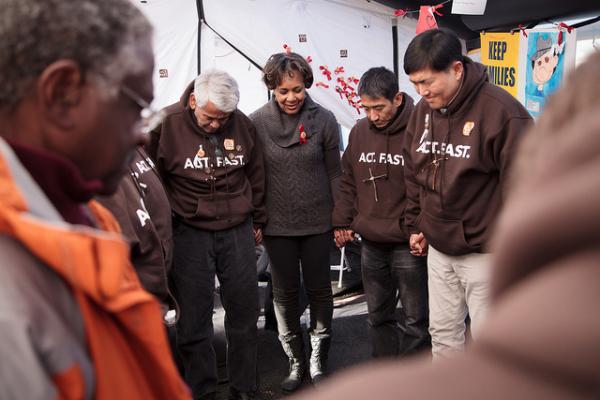On Sunday, with lots of turkey, stuffing and pie still in the fridge, I joined the #Fast4families movement, abstaining from food and drink for a day in order to pray for immigration reform. At first, I hesitated because it wasn’t necessarily my ideal time for fasting — besides being Thanksgiving weekend, I was about to enter the last two weeks of my academic semester, the most mentally demanding and sleep-depriving time of my year.
Quickly, however, I realized that all the worries I had going into the fast came from my white, privileged, experience of the world. Because of my privilege, I could believe in the illusion that immigration reform does not affect me.
The more I thought about this, the more I concluded that my reasons for not fasting were pointing to the ugliness of my own privilege and participation in racism, for if we do not actively challenge racism, we affirm it. This is what Jesus was getting at in Matthew 12:30, when he said, “Whoever is not with me is against me, and whoever does not gather with me scatters.” Jesus does not call us to merely advocate, but asks us invest our whole lives.
My hesitancy to fast was also a reflection of Western spirituality, which privileges the mind over the body and knowledge over action. Before I knew about the fast, my inclination was to spend my day’s energy on academic work, ignoring the body I live in, as well as those bodies that suffer far more than I ever would under an oppressive immigration system.
Read the Full Article

